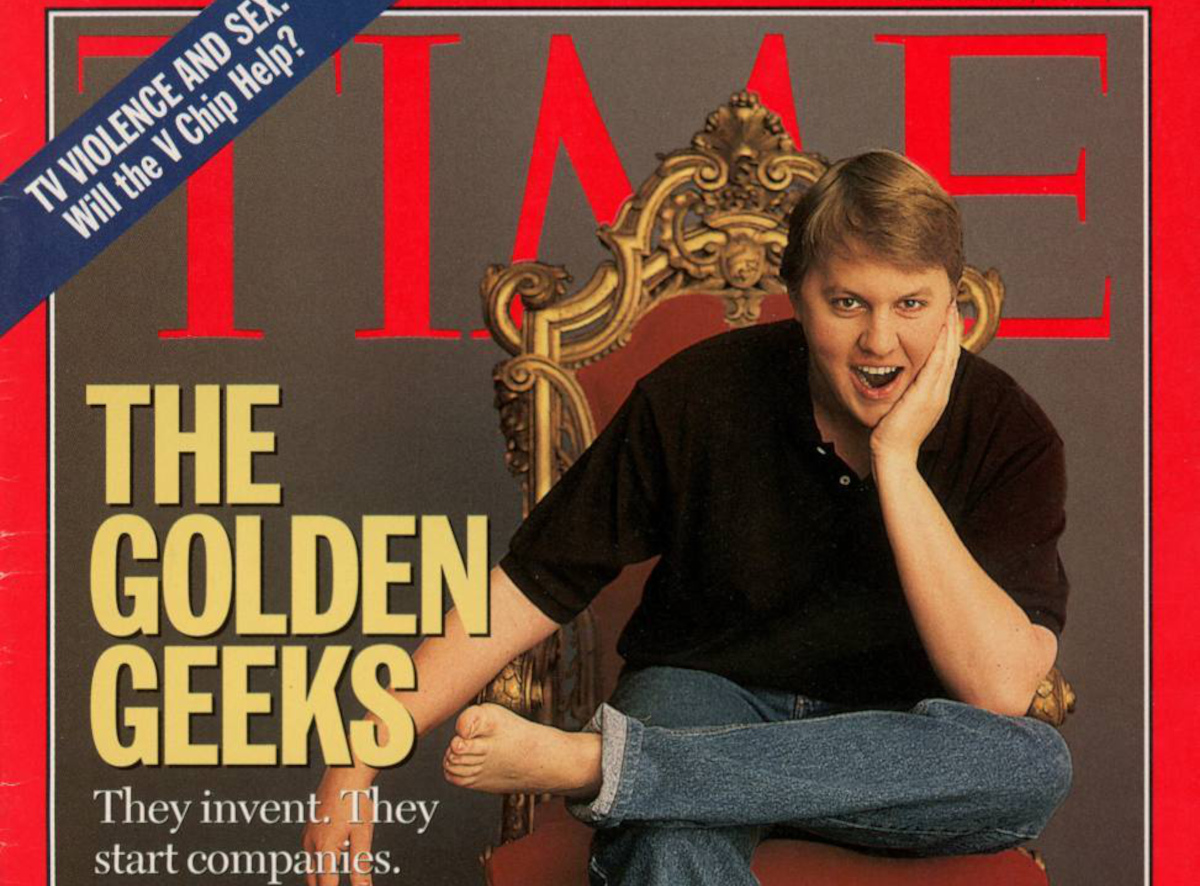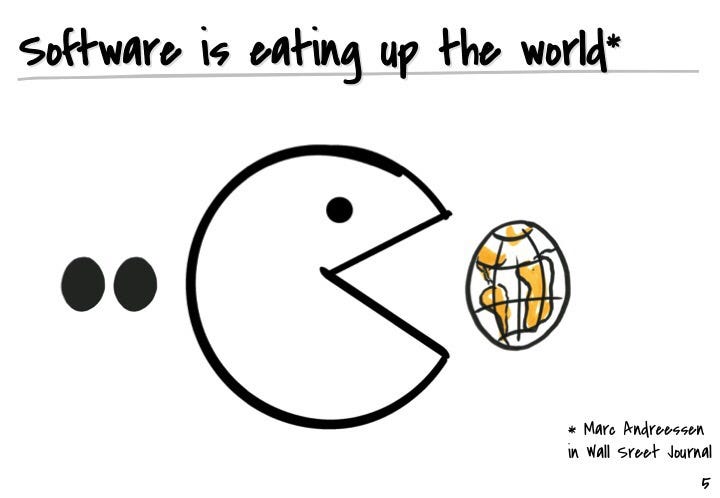Somebody needed to say this.
— Paramendra Kumar Bhagat (@paramendra) May 26, 2025
Software Ate the World. Now AI Is Eating Software.
In 2011, Marc Andreessen famously declared that “software is eating the world.” And he was right. Over the next decade, nearly every industry was digitized, disrupted, or demolished by software. From how we shop to how we bank, from how we communicate to how we date, software became the invisible infrastructure of modern life. Every company became, in part, a software company.
But something new is happening now.
AI is eating software.
The New Eater Emerges
Artificial Intelligence, particularly large language models (LLMs), generative AI, and autonomous agents, are transforming how software is built, deployed, and even conceptualized. AI isn’t just another software tool—it’s a new layer that sits above software development itself.
Where once humans wrote code, now AI can generate it. Where once we had to meticulously design workflows, AI can infer and optimize them in real-time. AI doesn’t just use software—it writes, fixes, tests, and even replaces it.
From Apps to Agents
Apps used to be the endpoint of software innovation. You needed a team of developers to build a new productivity app, or a customer support system, or a recommendation engine. Now, an LLM can spin up an AI agent that handles all of that, learning as it goes.
Instead of building a CRM, businesses are deploying AI agents that are the CRM—automatically conversing with clients, managing data, summarizing interactions, and improving with every customer touchpoint.
We’re moving from a world of static software products to dynamic, self-improving, conversational systems.
Zero UI, Zero Code, Infinite Potential
AI is beginning to erode the traditional interfaces of software. Why click buttons and navigate menus when you can just say what you want?
Want a new dashboard? Tell your AI agent.
Need an email campaign launched, a spreadsheet analyzed, a bug fixed? Just describe the problem in plain English.
In this world, the real power isn’t in knowing how to code—it’s in knowing how to communicate. Prompting is the new programming. And anyone can prompt.
Implications: The Developer's Role Evolves
Developers are not becoming obsolete—they are becoming conductors rather than technicians. AI handles the repetitive, boilerplate code. Developers steer, architect, and integrate. More focus shifts to system design, governance, ethics, and human-AI collaboration.
Meanwhile, millions who were previously excluded from software creation now have tools to build, automate, and create at the speed of thought.
Beyond Software: Eating the World, Again
If software ate the world by digitizing it, AI is now reimagining it. AI is poised to redefine what’s possible in medicine, education, law, entertainment, science, and even governance.
It’s not just eating software—it’s reshaping intelligence itself.
Conclusion:
Software once transformed industries. Now AI is transforming software.
We’re not witnessing an incremental shift—we’re witnessing a recursive one: intelligence building intelligence, software creating software, and ideas becoming products without the friction of traditional development.
It’s not the end of software.
It’s the beginning of something much bigger.
Software Ate the World. Now AI Is Eating Software. https://t.co/G8qeFFIqvH
— Paramendra Kumar Bhagat (@paramendra) May 26, 2025
Self-Driving Showdown: Tesla vs BYD vs Waymo — Who’s Winning the Autonomy Race? https://t.co/8Z5t7mVdF6
— Paramendra Kumar Bhagat (@paramendra) May 26, 2025
The frontier tech prisoners dilemma
China is largely deploying self-driving parcel delivery cars nationwide.
— Li Zexin (@XH_Lee23) May 25, 2025
To have these, a rule-based, safe and civilized society is a must. pic.twitter.com/4iUMcX8m3z
The last Indian cities with a world-class drainage system were Mohenjo-Daro and Harappa... in 2600 BC. We peaked early.
— Trendulkar (@Trendulkar) May 26, 2025
2/3 of Israelis oppose food aid for Gaza, with many wrongly believing less than 10% of Gazans are hungry. The reality? Over 90% face acute food insecurity. Media bias and censorship in Israel may be distorting public perception, political science professors explain:
— The Conversation U.S. (@ConversationUS) May 26, 2025
Startup founders handling everything themselves: pic.twitter.com/Knl4Y0WIGt
— Andrew Gazdecki (@agazdecki) May 26, 2025
Bad metaphor. What you are showing is less complicated than it looks. :)
— Paramendra Kumar Bhagat (@paramendra) May 26, 2025
btw u can just decide for good things to happen to u
— Ali Debow (@ali_debow) May 26, 2025
you can literally schedule it into your calendar
I said “stop fucking up” after getting multiple incorrect responses pic.twitter.com/Wv9jmvgA59
— Zack Voell (@zackvoell) May 26, 2025
In theory ai should make us more intelligent. In practice it might make most of us stupider.
— Craig Weiss (@craigzLiszt) May 26, 2025
An important thing to remember about san francisco in order to thrive is no one ever means what they say
— robyn (@_robyn_smith) May 26, 2025
Overheard in SF:
— Lauren Self (@laurenlself) May 25, 2025
I can’t afford rent so I’m gonna ask my landlord if I can give him a SAFE instead
claude needs an incognito mode for when i'm searching in front of my friends
— eliza (@elizalian) May 26, 2025




No comments:
Post a Comment